“What do you think about health care professionals using social media?”
I hear discussion about this question often. Opinions are wide-ranging, as are the statements in support and against health care professionals embracing social media.
I’ve integrated social media into my personal and professional life gradually over the last five years. I keep my LinkedIn profile up-to-date, I explore Facebook for a few minutes each day, and I’m closing in on 2,000 Tweets. In the diffusion of innovation curve, I land as an Early Majority adopter on most innovation items. This was the case for my social media experience.
As I’ve been asked this question more often, I began to think more about why I’ve embraced social media. While the answer is well beyond one person’s opinion, here are a few points to consider as you decide how you integrate social media into your life:
Being “social” is not new to you.
Our first order of business is to take a deep breath. You are probably already very good at being social. Clinicians are some of the most social beings on the planet. Most of use were drawn to our practice of choice because of our love of people. Well, clinicians are people too! People who work in relationship with each other can accomplish great things.
It’s the “media” part of social media that seems to give us pause. In this case, media means internet. Newspapers, magazines, television and radio are all forms of media already well-integrated into our lives. The internet is closing in quickly on the top spot among these more seasoned forms of communication.
Pew Research Center cites that 85% of Americans use the internet, and 7 in 10 have a social media profile. As the internet continues to evolve, more information is being shared back and forth in two-way and group communication. Sounds a lot like “conversation” to me. Don’t let the technology piece hold you up from exploring new ways to be social.
It is OK to ask for help.
Health care professionals are problem-solvers. We are good at helping others. One thing we’re not so good at is asking for help when we need it.
The technology part of the social media revolution is the part that is hanging up most providers. This concern is highly valid. We have a responsibility to protect the privacy of our patients and ourselves that the average person does not hold. You know HIPAA well when it comes to person-to-person interaction. Taking the conversation online is no different. As a health care professional, you need to hold the same high standards in all your online communications.
One simple rule can help: When in doubt, don’t. If you would not share it in person, don’t share it online. One poor judgment can last forever online. This is where asking for a little help and feedback from your peers comes in handy for many of us.
Licensed practitioners have an opportunity and a duty to err on the side of caution when it comes to making judgements. It’s why best practices for surgeons include a pause right before they begin. Practice your own “pause” before you hit Send, Post, Tweet or Tag, and when in doubt, don’t.
You can better influence the outcome on the offense.
This is the primary reason I adopted social media into my professional life. I wanted to influence my own career path and online presence, and there is no better way than to get involved in the process.
Many sports demonstrate this idea well. Let’s take football for example. The team with more points at the end of the game wins. Your team starts with zero. You have to go on offense to score points. Sure, you can score a few points on defense. Defense will always be part of the equation in any strategy or effort. But the majority of your points will come on offense, when you get to make the calls and move the ball the way you want.
Your professional reputation is the most valuable asset in your career. You have two options to help form that reputation: let others do all the talking, or do a little talking yourself. It’s not selfish; it’s smart. You already do it locally in your person-to-person interactions. Social media presents the opportunity for you to project your reputation into the world.
What you say, what you post, what you “like” – all these things express your values and your passions. In career development the term is “professional branding.” You can help shape how others view you by participating in the conversation. Highlight articles that resonate with your professional interests. Build trust by weighing in on conversations from your professional point of view. Comment on your career goals to hold yourself more accountable. All of these things can be accomplished through social media. Managing your online presence is so important in shaping the Story of You. Go on offense.
Social media is important to the future of health care.
More health care information is being shared online than ever before. In 2012, 13% of Americans used both offline and online means to interact with healthcare providers. Expect this number to continue to rise each year. Studies have also shown that social media users are more likely to trust online posts by doctors and nurses than other health-related posts. Allied health professionals surely aren’t too far behind. Best to be prepared and proactive.
Being social is human and it is natural to you. Consider using social media to help your career thrive in new ways.
______________________________________________________________________
Derek Fenwick, PT, MBA, GCS is a physical therapist and board-certified geriatric clinical specialist. He develops leaders in healthcare as the Director of Professional Development at Infinity Rehab. Find him on LinkedIn and on Twitter @DerekFenwickPT.






